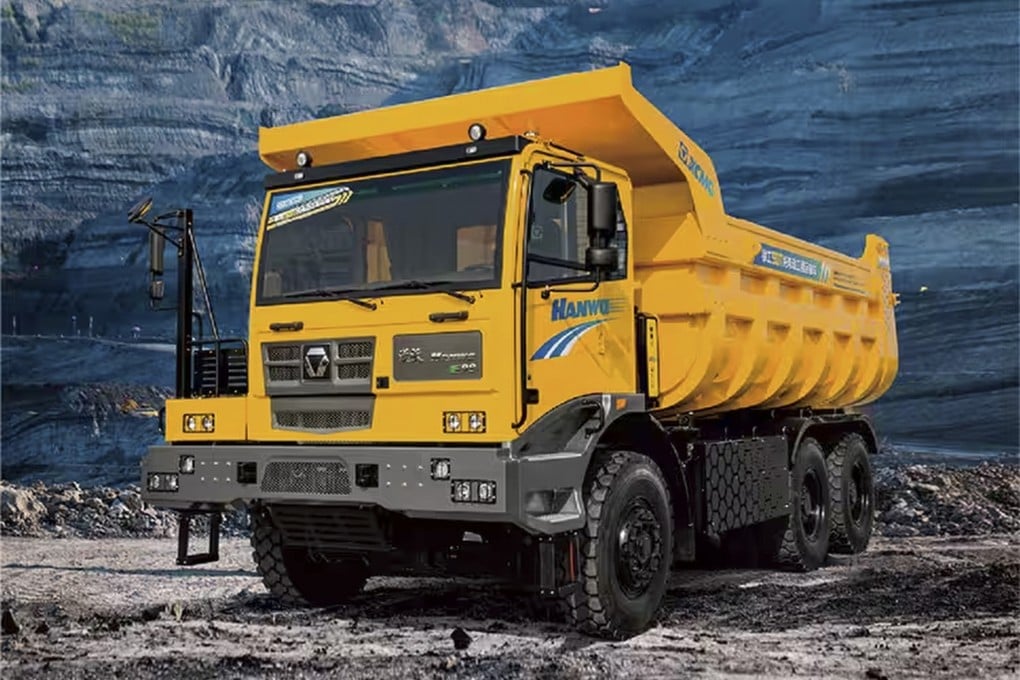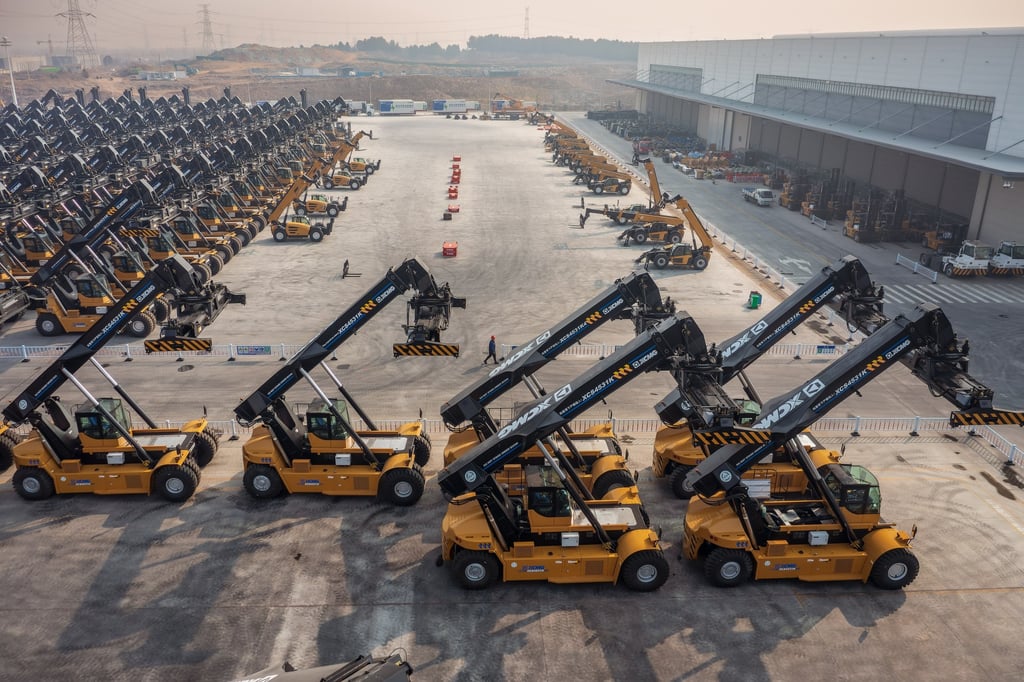Green heavy machinery: China’s construction and mining sectors demand more battery and hydrogen-powered equipment
- Xuzhou Construction Machinery Group aims to triple its sales of electric heavy machines to 30 per cent of total revenue in the next four years
- Company is working with China’s BYD and Japan’s Toyota to accelerate the electrification of its product line

The 80-year-old Shenzhen-listed company, China’s second largest heavy machinery maker, is securing the expertise of domestic and overseas component partners including China’s BYD and Japan’s Toyota to accelerate the electrification of its product line, which includes cranes, loaders, excavators, impact crushers and dump trucks used by construction and mining companies.
“In this year’s first half, sales of our new-energy products surged 175 per cent year-on-year to 5.27 billion yuan [US$722 million], surpassing 10 per cent of our total revenue,” Zhai Genli, assistant director of the medium-sized loader research institute at XCMG Machinery Research Institute, told the Post.
“We expect our products’ electrification to accelerate, in line with analysts’ forecast for new energy products to exceed 30 per cent of the industry’s sales by 2027.”

Hunan province-based rival Sany Heavy Industry is on a similar journey. Last year, sales of electrified products more than trebled to 2.7 billion yuan from 2021. The company launched more than 40 electrified products – including dump trucks and mixer trucks – during the first half of 2023.